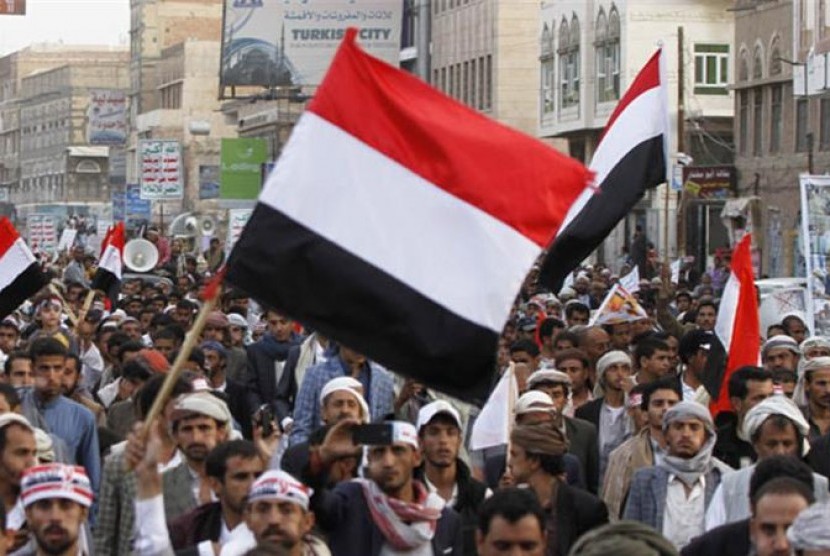REPUBLIKA.CO.ID, RIYADH -- Saudi Arabia said on Tuesday it would only send ground troops into Yemen against the Houthi militia if such operations became necessary, after the fiercest day of clashes on the border since it began air strikes began last week.
"There could be a limited ground operation, in specific areas, at specific times. But don't expect there to be a resort automatically to a ground operation," said Brigadier General Ahmed Asseri, spokesman for the Saudi-led coalition.
"I don't want us to concentrate on the land operation as if it is a 'must' ... if it is possible to achieve the goals through other means," he said.
Six days of air strikes have targeted Houthi-held military hardware, from jets and tanks to anti-aircraft cannons and ballistic missiles, but have so far failed to eject the militia from cities or other territory it holds.
Yemen's Foreign Minister Riyadh Yaseen, who has sought shelter in Saudi Arabia, called on Tuesday for an Arab ground intervention as soon as possible to "save Yemenis under siege" from the Houthis and their allies.
The two main areas of operations have been around the southern city of Aden, the last major centre still held by forces loyal to Saudi-backed President Abd-Rabbu Mansour Hadi, and northern parts of Yemen near the kingdom's southern border.
Other air strikes have attacked targets in Sanaa and elsewhere in the country.
Saudi and Iran-allied Houthi forces exchanged artillery fire in several locations along the border on Tuesday in what residents of the area said was the heaviest fighting there since hostilities started last week.
Saudi land forces have attacked Houthi positions near the border for several days using both artillery and Apache aircraft, Asseri has said.
"When the coalition forces confirm the need for land operation, it will not hesitate to carry this out," Asseri added during a news conference in the Saudi capital Riyadh.
Asked whether Saudi Arabia or other coalition countries were reinforcing the border area with additional forces, Asseri said the military presence already there was "good enough to address the threat".


